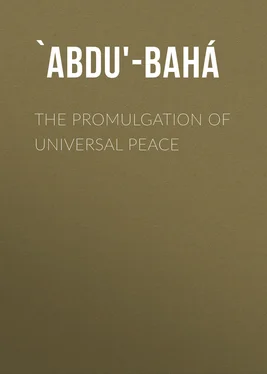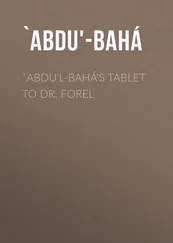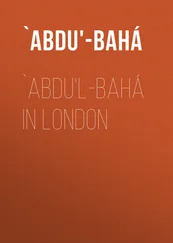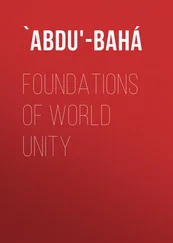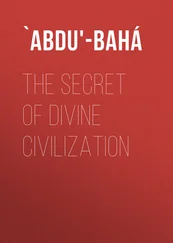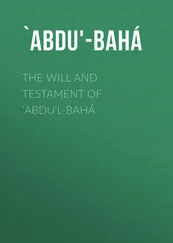`Abdu'-Bahá - The Promulgation of Universal Peace
Здесь есть возможность читать онлайн «`Abdu'-Bahá - The Promulgation of Universal Peace» — ознакомительный отрывок электронной книги совершенно бесплатно, а после прочтения отрывка купить полную версию. В некоторых случаях можно слушать аудио, скачать через торрент в формате fb2 и присутствует краткое содержание. Издательство: Иностранный паблик, Жанр: foreign_prose, foreign_religion, Философия, Ужасы и Мистика, foreign_psychology, на английском языке. Описание произведения, (предисловие) а так же отзывы посетителей доступны на портале библиотеки ЛибКат.
- Название:The Promulgation of Universal Peace
- Автор:
- Издательство:Иностранный паблик
- Жанр:
- Год:неизвестен
- ISBN:нет данных
- Рейтинг книги:4 / 5. Голосов: 1
-
Избранное:Добавить в избранное
- Отзывы:
-
Ваша оценка:
- 80
- 1
- 2
- 3
- 4
- 5
The Promulgation of Universal Peace: краткое содержание, описание и аннотация
Предлагаем к чтению аннотацию, описание, краткое содержание или предисловие (зависит от того, что написал сам автор книги «The Promulgation of Universal Peace»). Если вы не нашли необходимую информацию о книге — напишите в комментариях, мы постараемся отыскать её.
The Promulgation of Universal Peace — читать онлайн ознакомительный отрывок
Ниже представлен текст книги, разбитый по страницам. Система сохранения места последней прочитанной страницы, позволяет с удобством читать онлайн бесплатно книгу «The Promulgation of Universal Peace», без необходимости каждый раз заново искать на чём Вы остановились. Поставьте закладку, и сможете в любой момент перейти на страницу, на которой закончили чтение.
Интервал:
Закладка:
Science is the first emanation from God toward man. All created beings embody the potentiality of material perfection, but the power of intellectual investigation and scientific acquisition is a higher virtue specialized to man alone. Other beings and organisms are deprived of this potentiality and attainment. God has created or deposited this love of reality in man. The development and progress of a nation is according to the measure and degree of that nation’s scientific attainments. Through this means its greatness is continually increased, and day by day the welfare and prosperity of its people are assured.
All blessings are divine in origin, but none can be compared with this power of intellectual investigation and research, which is an eternal gift producing fruits of unending delight. Man is ever partaking of these fruits. All other blessings are temporary; this is an everlasting possession. Even sovereignty has its limitations and overthrow; this is a kingship and dominion which none may usurp or destroy. Briefly, it is an eternal blessing and divine bestowal, the supreme gift of God to man. Therefore, you should put forward your most earnest efforts toward the acquisition of science and arts. The greater your attainment, the higher your standard in the divine purpose. The man of science is perceiving and endowed with vision, whereas he who is ignorant and neglectful of this development is blind. The investigating mind is attentive, alive; the callous and indifferent mind is deaf and dead. A scientific man is a true index and representative of humanity, for through processes of inductive reasoning and research he is informed of all that appertains to humanity, its status, conditions and happenings. He studies the human body politic, understands social problems and weaves the web and texture of civilization. In fact, science may be likened to a mirror wherein the infinite forms and images of existing things are revealed and reflected. It is the very foundation of all individual and national development. Without this basis of investigation, development is impossible. Therefore, seek with diligent endeavor the knowledge and attainment of all that lies within the power of this wonderful bestowal.
We have already stated that science or the attribute of scientific penetration is supernatural and that all other blessings of God are within the boundary of nature. What is the proof of this? All created things except man are captives of nature. The stars and suns swinging through infinite space, all earthly forms of life and existence—whether mineral, vegetable or animal—come under the dominion and control of natural law. Man through scientific knowledge and power rules nature and utilizes her laws to do his bidding. According to natural limitations he is a creature of earth, restricted to life upon its surface, but through scientific utilization of material laws he soars in the sky, sails upon the ocean and dives beneath it. The products of his invention and discovery, so familiar to us in daily life, were once mysteries of nature. For instance, man has brought electricity out of the plane of the invisible into the plane of the visible, harnessed and imprisoned that mysterious natural agent and made it the servant of his needs and wishes. Similar instances are many, but we will not prolong this. Man, as it were, takes the sword out of nature’s hand and with it for his scepter of authority dominates nature itself. Nature is without the crown of human faculties and attributes. Man possesses conscious intelligence and reflection; nature does not. This is an established fundamental among philosophers. Man is endowed with volition and memory; nature has neither. Man can seek out the mysteries latent in nature, whereas nature is not conscious of her own hidden phenomena. Man is progressive; nature is stationary, without the power of progression or retrogression. Man is endowed with ideal virtues—for example, intellection, volition, faith, confession and acknowledgment of God—while nature is devoid of all these. The ideal faculties of man, including the capacity for scientific acquisition, are beyond nature’s ken. These are powers whereby man is differentiated and distinguished from all other forms of life. This is the bestowal of divine idealism, the crown adorning human heads. Notwithstanding the gift of this supernatural power, it is most amazing that materialists still consider themselves within the bonds and captivity of nature. The truth is that God has endowed man with virtues, powers and ideal faculties of which nature is entirely bereft and by which man is elevated, distinguished and superior. We must thank God for these bestowals, for these powers He has given us, for this crown He has placed upon our heads.
How shall we utilize these gifts and expend these bounties? By directing our efforts toward the unification of the human race. We must use these powers in establishing the oneness of the world of humanity, appreciate these virtues by accomplishing the unity of whites and blacks, devote this divine intelligence to the perfecting of amity and accord among all branches of the human family so that under the protection and providence of God the East and West may hold each other’s hands and become as lovers. Then will mankind be as one nation, one race and kind—as waves of one ocean. Although these waves may differ in form and shape, they are waves of the same sea. Flowers may be variegated in colors, but they are all flowers of one garden. Trees differ though they grow in the same orchard. All are nourished and quickened into life by the bounty of the same rain, all grow and develop by the heat and light of the one sun, all are refreshed and exhilarated by the same breeze that they may bring forth varied fruits. This is according to the creative wisdom. If all trees bore the same kind of fruit, it would cease to be delicious. In their never-ending variety man finds enjoyment instead of monotony.
And now as I look into your faces, I am reminded of trees varying in color and form but all bearing luscious and delectable fruits, fragrant and delightful to the inner and outer senses. The radiance and spirituality of this meeting is through the favor of God. Our hearts are uplifted in thankfulness to Him. Praise be to God! You are living upon the great continent of the West, enjoying the perfect liberty, security and peace of this just government. There is no cause for sorrow or unhappiness anywhere; every means of happiness and enjoyment is about you, for in this human world there is no greater blessing than liberty. You do not know. I, who for forty years have been a prisoner, do know. I do know the value and blessing of liberty. For you have been and are now living in freedom, and you have no fear of anybody. Is there a greater blessing than this? Freedom! Liberty! Security! These are the great bestowals of God. Therefore, praise ye God! I will now pray in your behalf.
24 April 1912
Talk at Children’s Reception
Studio Hall
1219 Connecticut Avenue, Washington, D.C
What a wonderful meeting this is! These are the children of the Kingdom. The song we have just listened to was very beautiful in melody and words. The art of music is divine and effective. It is the food of the soul and spirit. Through the power and charm of music the spirit of man is uplifted. It has wonderful sway and effect in the hearts of children, for their hearts are pure, and melodies have great influence in them. The latent talents with which the hearts of these children are endowed will find expression through the medium of music. Therefore, you must exert yourselves to make them proficient; teach them to sing with excellence and effect. It is incumbent upon each child to know something of music, for without knowledge of this art the melodies of instrument and voice cannot be rightly enjoyed. Likewise, it is necessary that the schools teach it in order that the souls and hearts of the pupils may become vivified and exhilarated and their lives be brightened with enjoyment.
Читать дальшеИнтервал:
Закладка:
Похожие книги на «The Promulgation of Universal Peace»
Представляем Вашему вниманию похожие книги на «The Promulgation of Universal Peace» списком для выбора. Мы отобрали схожую по названию и смыслу литературу в надежде предоставить читателям больше вариантов отыскать новые, интересные, ещё непрочитанные произведения.
Обсуждение, отзывы о книге «The Promulgation of Universal Peace» и просто собственные мнения читателей. Оставьте ваши комментарии, напишите, что Вы думаете о произведении, его смысле или главных героях. Укажите что конкретно понравилось, а что нет, и почему Вы так считаете.
